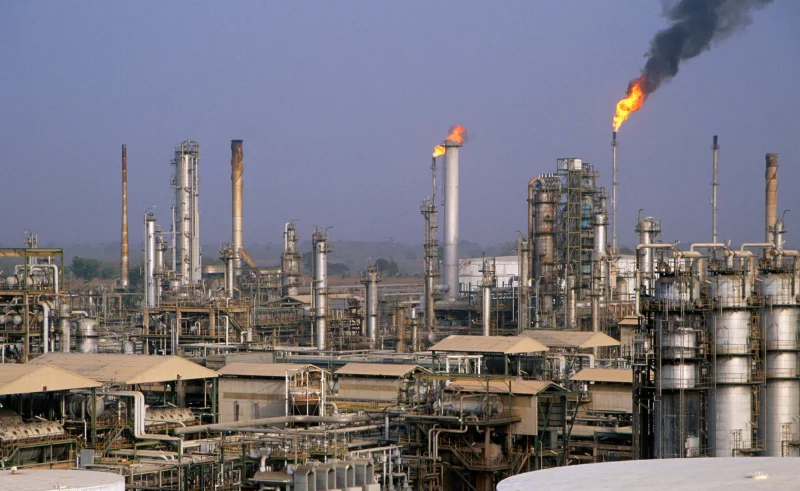
Europe has long been dependent on natural gas imports, especially from Russia, which has led to recent concerns about energy security. The region’s dependence on gas imports became even more apparent with Russia’s invasion of Ukraine, which disrupted gas supplies. Europe’s dependence on Russian gas has become a pressing concern, especially as Moscow has reduced natural gas supplies to EU countries, causing energy prices to soar. As a result, European policymakers are actively seeking alternative sources of gas to reduce their dependence on Russian energy.
The EU could reduce its imports of Russian natural gas by more than one-third within a year through a combination of measures, including increasing imports of gas and liquefied natural gas from other countries. Several African countries are emerging as significant gas producers, further contributing to the potential for gas exportation to Europe. Countries such as Senegal, Nigeria, and Angola have been identified as potential partners in this search for alternative sources of gas. Also, countries such as Mozambique, Tanzania, and Senegal have recently discovered large natural gas reserves, and investment in gas infrastructure is expected to increase in these regions.
Africa possesses vast natural gas reserves, with proven reserves amounting to 625 trillion cubic feet (Tcf). Currently, there is an existing gas trade between Africa and Europe, with Africa exporting 82.5 billion cubic meters (bcm) of gas in 2020, which accounts for 9% of global gas trade. Nearly half of this was Algerian exports. However, Africa currently only accounts for around 20% of Europe’s gas imports. The EU has expressed interest in importing as much African gas as possible, which presents an opportunity for African countries to develop their gas industries and potentially become major players in the global gas market.
Increasing focus on Africa has sparked hope among African nations that they can fill the void left by Russia’s reduction in gas exports to Europe. The EU and some European countries are taking steps towards partnerships with African countries. A new liquefied natural gas project off Africa’s western coast is already generating interest, despite being only 80 percent complete.
Moreover, under its approved REPowerEU plan, the EU is seeking to conclude a trilateral agreement with Egypt and Israel on the supply of LNG (Liquefied natural gas) and hydrogen to Europe. The new deal between Israel, Egypt, and the EU will see Israel send more gas to Europe via Egypt, which has facilities to liquefy it for export by sea. The UE also wishes to restart the energy dialogue with Algeria and is considering the untapped LNG potential of West African countries such as Nigeria, Senegal, and Angola. Additionally, Italy signed a $4bn gas deal with Algeria and Angola in 2022.
However, while there is growing investment in African gas infrastructure, progress has been slow due to political instability and corruption in some African countries. The EU is keen to import as much African gas as possible, but the challenge lies in funding the necessary infrastructure to transport it. The EU still remains cautious about funding projects that would allow the world’s poorest continent to become too reliant on gas exports.
The development of infrastructure and investment in the gas industry is crucial for Africa’s potential to become a major gas exporter to Europe. This would require significant investment in pipelines, liquefaction plants, and other infrastructure. The African Union is pushing for more investment in fossil gas projects, as European leaders seek alternatives to Russian gas imports.
Furthermore, Europe’s plans to use decarbonized gas as a transition fuel would present short-term opportunities for African gas producers. The energy transition has the potential to boost employment in the renewable energy sector substantially in Africa, relocalizing part of the circular economy value chain to the continent. Partnerships are being established between the European Union and African countries to develop green hydrogen, further expanding the potential for energy trade between the two regions.
Ultimately, increasing imports of African gas to Europe could have significant benefits for both regions. For Europe, it would provide a much-needed alternative to Russian gas and enhance energy security. For Africa, increased gas exports could provide a boost to economic development and job creation.
There are challenges to be addressed, such as the need for infrastructure investment and ensuring that gas is produced and transported in an environmentally sustainable way. The extraction and use of natural gas can have negative impacts on the environment, including greenhouse gas emissions and water pollution. Additionally, the social impacts of gas production, such as land displacement and human rights abuses, which must also be considered.
However, with proper regulations and sustainable practices, sufficient investment and political stability, the gas sector in Africa could contribute to economic development and cooperation between African countries and Europe, making Africa’s energy sector a viable alternative for European countries.
References
- A 10-Point Plan to Reduce the European Union’s Reliance …. (n.d.) Retrieved May 23, 2023, from www.iea.org
- Europe turns to Africa for gas as alternative to Russia. (n.d.) Retrieved May 23, 2023, from www.aljazeera.com
- EU Plans to Court Africa to Help Replace Russian Gas …. (n.d.) Retrieved May 23, 2023, from www.bloomberg.com
- Europe looks to Africa to fill natural gas gap – Deutsche Welle. (n.d.) Retrieved May 23, 2023, from corporate.dw.com
- Key findings – Africa Energy Outlook 2022 – Analysis. (n.d.) Retrieved May 23, 2023, from www.iea.org/reports/africa-energy-outlook-2022/key-findings
- Europe’s Rush to Buy Africa’s Natural Gas Draws Cries of …. (n.d.) Retrieved May 23, 2023, from www.bloomberg.com
- What Does the European Green Deal Mean for Africa?. (n.d.) Retrieved May 23, 2023, from carnegieendowment.org
- Could the Energy Transition Benefit Africa’s Economies?. (n.d.) Retrieved May 23, 2023, from www.irena.org
- Can Africa supply Europe’s energy demand?. (n.d.) Retrieved May 23, 2023, from www.dw.com
By The European Institute for International Law and International Relations.













